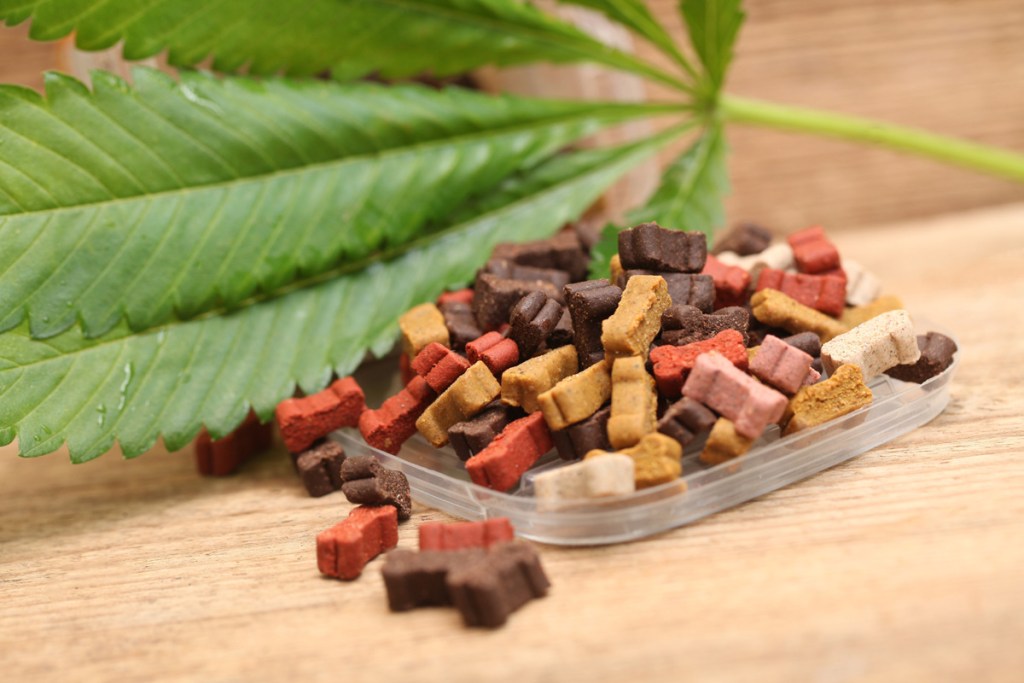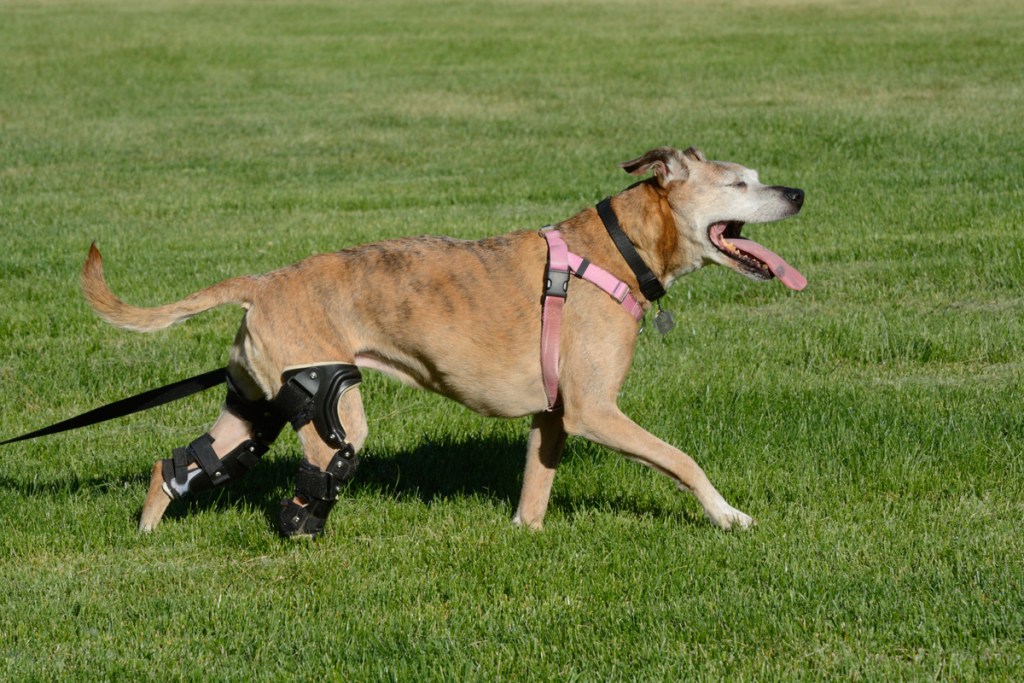You may not have purchased cannabidiol (CBD) products for your dog but you’ve surely heard about them. In an article on the Boulder Holistic Vet website veterinarian Angie Krause says that using cannabis for dogs is a hot topic that comes up daily in her practice. And while scientific research is still in the early stages, many veterinarians and pet parents say that CBD is helping pets in a variety of ways including relieving pain associated with osteoarthritis and calming anxious dogs.
CBD is a chemical in the cannabis sativa plant, also known as hemp. It is non-psychoactive and safe for dogs. Tetrahydrocannabinol (THC) is the primary psychoactive component of marijuana. Legally, there can be trace amounts of THC (less than 0.3 percent) in CBD products. This is important for pet parents to know as an excessive amount of THC is toxic to animals.

What does CBD do for Dogs?
According to Krause, the list of conditions that are improved by the use of CBD grows daily in her practice. The holistic veterinarian says that she often recommends cannabis to treat one ailment, only to find it has improved other symptoms. Right now, “the possibilities are endless” when it comes to the benefits of using CBD to treat pets, according to Krause. And she’s not the only veterinary expert to recommend CBD products for her clients. In a 2021 survey of 1,448 pet owners by Leafreport, 50 percent of respondents said they give CBD to their pets, and the majority reported doing so at the recommendation of their veterinarians.
A 2018 study at Cornell University College of Veterinary Medicine found that CBD oil helped relieve pain and resulted in increased physical activity improving the overall quality of life for dogs suffering from osteoarthritis. And a 2020 study at Colorado State University College of Veterinary Medicine and Biomedical Sciences found that when used in conjunction with traditional anti-seizure medication the use of CBD significantly reduced the number of seizures per month in dogs with idiopathic epilepsy.
Holistic veterinarian Laurel Davis of Sunset Animal Wellness in Asheville, North Carolina believes that while CBD is not a solution for all diseases or difficulties it does have a place in veterinary medicine. Many veterinarians and pet parents find that CBD helps pets suffering from:
- osteoarthritis
- anxiety and stress
- seizures
- asthma
According to Davis, veterinarians are also finding CBD hemp to be useful in treating acute ailments like sprains and strains, torn ligaments, bone breaks, and even during post-operative care to reduce swelling, pain, and stiffness.
Do CBD treats really work?
CBD treats come in the form of chews, bones, or gummies and are a popular choice for pet parents because they are easy to manage. The Leafreport survey found that the majority of pet owners who gave CBD to their dogs chose treats, and of those 67 percent reported that the treats had resulted in “moderate to great improvements” in their pet. Additionally, 74 percent of the respondents said they were likely or very likely to recommend CBD to other pet owners.
Whether or not CBD treats help with your dog’s condition can depend on the quality of the product you purchase and the dosing based on the weight of your dog. In an American Kennel Club article AKC Chief Veterinary Officer Jerry Klein recommends administering CBD in oil or tincture form rather than giving treats because it’s “easier to adjust a dog’s dose drop by drop.”
It’s important to know that not all CBD-pet chews are created equal, so you have to do your research before choosing a product. Experts at Veterinary Cannabis Education and Consulting say that pet parents need to look for a company with high ethical standards and transparency as to its manufacturing techniques.
Follow these tips when choosing a CBD product:
- Look for full-spectrum CBD products that contain a wide diversity of cannabis compounds as veterinary experts say those offer the greatest benefit to pets.
- Make sure the company uses an independent laboratory to research its products and ask for a certificate of analysis that shows you exactly what is in the product you’re buying.
- Look for products that use organic ingredients including organically-grown hemp and organically-sourced oils.
- Read customer reviews to see what pet parents are saying about the effectiveness of the product you’re considering.

If you do decide to give CBD treats to your dog, be sure to check in with your veterinarian. This is especially true if your dog is being treated for an ailment as you want to avoid negative reactions when using CBD along with traditional medications. Also, don’t shop for treats based on price alone as the cheaper CBD treats could contain substances such as pesticides and herbicides or heavy metals. As the saying goes, you get what you pay for and we know you want only the best for your dog.



